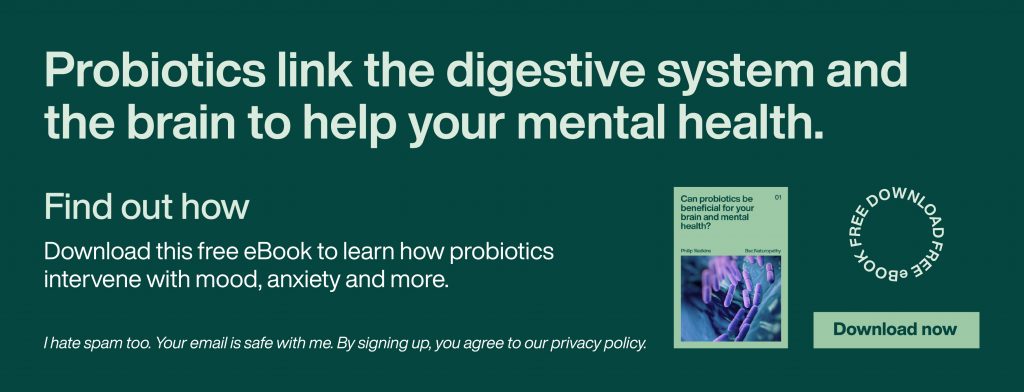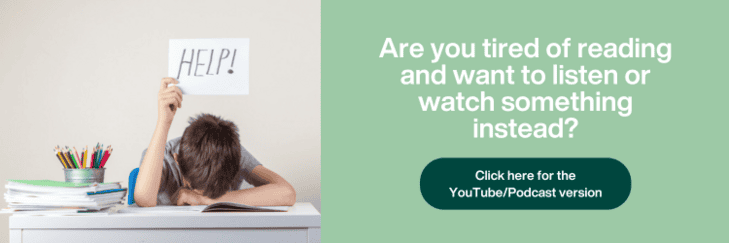We’ve all been there. Lunch is over, the afternoon workload is looming, and the clouds in your brain are starting to form. Your brain always gets foggy around this time of day, and just as you feel it on the horizon, the bloating starts. Your eyelids are heavy and tired within a few moments, and you’re ready for a nap – it must be 3 pm.
Feeling tired at 3 pm is a common symptom. You just have to see the queues forming at your local coffee spot to see how many people are going through the same thing.
Managing your micronutrient resources can fix this slump, but making the right lunch choices for your gut bacteria and taking steps to improve your blood sugar can bring a more summer vibe back to your brain within just a few weeks.
“Why do I get tired at 3 pm every day?”
The answer is simple: your digestion, blood sugar levels, and brain respond to the food you’ve eaten at lunch.
Specifically, the high glycemic carbohydrates in your lunch are causing an increase in serotonin production which increases your melatonin production, making you feel sleepy and tired.
This tiredness may not be new – but what is new is that your lunch and a diet high in sugar are now associated with not just brain fog but negative neuroplasticity, anxiety, depression and addiction.[1]
This association puts “emotional eating” into quite a different context. Let’s take a deeper look at how digestion is involved.
“Why the bloating as well?”
The reason why bloating and distention occurs is still not entirely known.[2] As with irritable bowel syndrome and its ambiguity, multiple independent reasons can be sustaining and excitatory to the problem.
If you’re bloated after a high carbohydrate meal, it’s most likely the sugar and how it interacts with the bacterial environment in your digestion.
Here’s what is happening
When you consume refined grains or high amounts of sugar for lunch, the bacteria in your digestion, mainly in the large intestine, are responsible for digesting the excess sugar that your stomach and saliva don’t. For a lot of people, this can be an inefficient process.
An unwanted by-product of this ineffective digestive is, you guessed it – gas in the form of methane and hydrogen that leads to bloating.
This bloating will pass for most over a few hours. For others, though, loose or strained bowel patterns can develop with a constant sensation of fullness.
Worse still, the cramping and urgency that accompanies the bloating can very much interfere with the quality of the day as you rush to find the nearest toilet at inconvenient times.
That’s not the only thing that’s happening. While the overt symptoms of bloating, fullness and cramping are apparent, inflammation builds in response to changes in the microbiome caused by consuming high sugary foods.
Yep, the refined white bread in your sandwich has the power to change the balance of bacteria in your digestion.
Research shows that either positive or negative dietary alterations can cause significant, temporary microbial shifts within just 24 hours.[3]
The type of foods you choose to eat at lunch play a more prominent role than you think.
If you are an adult, none of this is a surprise. What might surprise you is how much we can predict how the microbiome will change based on your foods.
Let’s start with something that you already know. Artificial sweeteners are unhealthy. You’ve come this far only to hear something you already knew but wait, it’s crucial.
Regular consumption of artificial sweeteners can reduce Lactobacilli and Bifidobacterium. These commonly seen probiotic strain has documented health benefits for the immune system and inflammatory bowel disease.[4] [5]
Reductions in these species of bacteria directly influence the way your body regulates the immune system. This immune regulation is why you hear of people successfully helping their autoimmune conditions via healing the microbiome. I digress.
These essential species of probiotics have a deep connection with your immune system and, as the research is unfolding, your brain.
Why? Decreases in Lactobacilli and Bifidobacteria are associated with the same whole-body low-grade inflammation that we associate with brain fog.

The 3 pm slump is more than just a symptom: the brain fog and inflammation connection.
It’s hard to know your brain is inflamed. When you bang your elbow, and everyone thinks it’s funny, aside from you, at least there is enough feedback to guard your elbow until the pain subsides.
The brain doesn’t have these pain receptors making it challenging to know that inflammation is present.
Research completed in late 2019 may now help us use brain fog as a cue towards recognising that our brain is inflamed and needs some attention.
When researchers created an acute low-grade inflammation in participants, the central area of the brain affected was the region associated with staying alert.[6]
No wonder it’s hard to stay awake in your meeting.
It might not be just your attention that’s at risk. Mounting research shows that inflammation in the brain, commonly referred to as neuroinflammation, is now the critical therapeutic focus in treating major depression. [7]
So much so that researchers are now looking to therapies that target the immune system specifically to manage stress-induced depression.[8]
This same neuroinflammation can often make generalised anxiety hard to treat once it’s started.
“How does low or high blood sugar play a role in this?”
We introduced how the foods you eat can cause a surge in serotonin in your brain that can make you sleepy. But what happens after that?
Ever had a time when you’ve been out for the count between three and four o’clock? Then suddenly you’re full of energy and can’t calm down? Well, this is where your hormones come in. A triad of hormones, cortisol, norepinephrine and epinephrine, are all involved in ensuring your blood sugar level doesn’t deviate too much. Let’s explain their role with an analogy.
There’s a car coming. You’re being whisked away by that favourite song in your headphones and crossed the street anyway. The car sounds the horn, scares the bejesus out of you, and you jump out of the way, just in time. Phew!
That increased heart and respiratory rate are compliments of this same triad of hormones. They just saved your life, precisely what they are supposed to do.
When your blood sugar goes down, epinephrine, norepinephrine, and cortisol all work together to release stored glucose into the bloodstream to bring your blood sugar back to normal naturally. It’s a survival mechanism to respond to and counter the effects of potential starvation.
This blood sugar connection brings us back to inflammation, the brain, that extra pork bun from lunch and why you didn’t have anything to offer at the end of Debra’s presentation.
Research suggests that when people consume less sugar, the inflammation measured in their blood comes down [9], which is the first thing to look at when fixing your 3 pm slump. First, though, I will give you an easy way to fix it now.
Introducing the quick solution to feeling tired at 3 pm slump (for most people)
Let’s face it. Coffee, chocolate, or that mini-sized Coke are easy and pleasurable solutions, and if you have gotten this far in the article and want to stick with them, that’s fine.
If you are like many of my patients and would love this afternoon’s madness to end, the solution may be quick and straightforward. The B – Complex Supplement.
Is that all? It seems benign, doesn’t it?
One of the first prescriptions the majority of my patients receive is a well-tolerated, methylated B-Complex.
Many people don’t know that this group of friends in a capsule play a significant role in breaking down the burger you had at lunch, turning the carbohydrates into the energy you need to not be tired at 3 pm.
There are almost ten different transactions between carbohydrates and cellular energy or ATP. Just one B Complex capsule after lunch can provide you with the nutritional currency required to pay for those transactions.
Not only that, but they also play an essential role in the management of your brain chemicals like serotonin, helping that brain fog lift and giving you the strength you need to survive that meeting with Steve.
“I don’t want to take supplements all the time.”
I agree. Some more profound work is required to end feeling tired at 3 pm and the associated digestive distress for good.
When fatigue sets in, especially when there are no clear reasons why the thought of engaging in dietary alterations and releasing the crutches that get through your day can be daunting, if you aren’t ready to be brave just yet, try the B Complex first and see how you go.
If you are ready to be brave, cut out refined sugar, refined grains and any other form of added or artificial sugar from your diet.
This directive should not be an invitation to go on a low carbohydrate diet, just as it’s not wise to eat copious amounts of fruit at 3 pm!
There is a happy balance. Keeping your choices to protein, three different vegetables and some salad greens for breakfast (yep, you read it right), lunch and dinner for 21 days is a great start.
Take a break from your favourite maple syrup flavoured granola and see how you feel.
“I’ve tried that, and it didn’t work.”
Sometimes the simple changes don’t work. It can be disenchanting. This outcome might mean that it’s time to get someone on your team to help.
Making more focused changes to the food you are eating and getting some inside information on the condition of your microbiome can open the door to the end of the fatigue and clear the fog for good!
References
[1] Beecher K, Alvarez Cooper I, Wang J, et al. Long-Term Overconsumption of Sugar Starting at Adolescence Produces Persistent Hyperactivity and Neurocognitive Deficits in Adulthood. Front Neurosci. 2021;15:670430. Published 2021 Jun 7. doi:10.3389/fnins.2021.670430
[2] Mari, A., Abu Backer, F., Mahamid, M. et al. Bloating and Abdominal Distension: Clinical Approach and Management. Adv Ther 36, 1075–1084 (2019). https://doi.org/10.1007/s12325-019-00924-7
[3] Singh RK, Chang HW, Yan D, et al. Influence of diet on the gut microbiome and implications for human health. J Transl Med. 2017;15(1):73. Published 2017 Apr 8. doi:10.1186/s12967-017-1175-y
[4] Singh RK, Chang HW, Yan D, et al. Influence of diet on the gut microbiome and implications for human health. J Transl Med. 2017;15(1):73. Published 2017 Apr 8. doi:10.1186/s12967-017-1175-y
[5] Pandey KR, Naik SR, Vakil BV. Probiotics, prebiotics and synbiotics-a review. J Food Sci Technol. 2015;52:7577–7587. doi: 10.1007/s13197-015-1921-1.
[6] Leonie JT. Balter, Jos A. Bosch, Sarah Aldred, Mark T. Drayson, Jet JCS. Veldhuijzen van Zanten, Suzanne Higgs, Jane E. Raymond, Ali Mazaheri, Selective effects of acute low-grade inflammation on human visual attention, NeuroImage, Volume 202, 2019, 116098, ISSN 1053-8119, https://doi.org/10.1016/j.neuroimage.2019.116098.
[7] Troubat, R, Barone, P, Leman, S, et al. Neuroinflammation and depression: A review. Eur J Neurosci. 2020; 00: 1– 21. https://doi.org/10.1111/ejn.14720
[8] Xiang Nie, Shiho Kitaoka, Kohei Tanaka, Eri Segi-Nishida, Yuki Imoto, Atsubumi Ogawa, Fumitake Nakano, Ayaka Tomohiro, Kazuki Nakayama, Masayuki Taniguchi, Yuko Mimori-Kiyosue, Akira Kakizuka, Shuh Narumiya, Tomoyuki Furuyashiki. The Innate Immune Receptors TLR2/4 Mediate Repeated Social Defeat Stress-Induced Social Avoidance through Prefrontal Microglial Activation. Neuron, 2018; DOI: 10.1016/j.neuron.2018.06.035
[9] Hert, K. A., et al. (2014). Decreased consumption of sugar-sweetened beverages improved selected biomarkers of chronic disease risk among US adults: 1999 to 2010 [Abstract].
https://www.ncbi.nlm.nih.gov/pubmed/24418247

